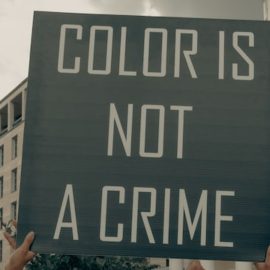

This article is an excerpt from the Shortform book guide to "Bullshit Jobs" by David Graeber. Shortform has the world's best summaries and analyses of books you should be reading.
Like this article? Sign up for a free trial here.
Is universal basic income (UBI) a good idea for ending pointless jobs? Why are pointless jobs harmful?
David Graeber wrote Bullshit Jobs to explain how jobs that don’t serve a purpose are not only inefficient, but are also harmful to society and workers. According to him, we can combat the proliferation of pointless jobs in society by introducing a universal basic income program.
Read on to learn why universal basic income is a good idea to end pointless jobs, according to Graeber.
Universal Basic Income: A Solution to Pointless Jobs?
In Bullshit Jobs, author and anthropology professor David Graeber stresses that the widespread phenomenon of pointless jobs in industrialized societies makes workers chronically miserable and creates deep social divisions. He highlights one policy that he believes may offer a chance at solving the problem: universal basic income. In this article, we’ll explain three reasons why universal basic income is a good idea for combatting the problem of pointless jobs, according to Graeber.
Why Are Pointless Jobs a Problem?
Graeber’s research found that those who work pointless jobs often feel miserable. You might assume that people would be happy getting paid to do nothing, but that’s actually not the case. Instead, Graeber maintains, deep down, most people genuinely want to contribute to society and feel frustrated and depressed when they can’t. Here are a few examples Graeber provides that illustrate how pointless jobs damage workers psychologically:
- The worker feels a need to keep up the pretense that they are doing something. Whether to keep up appearances, adhere to social norms, or keep from getting fired, the worker feels pressured to pretend that their job is purposeful when deep down they feel that it’s not.
- Workers will feel a sense of anxiety at being found out. If you believe that everyone expects you to be working, when actually you’re scrolling through social media all day because there’s nothing for you to do, this can create a fear of getting fired, or being seen as less valuable by others.
- Being dishonest forces workers to act against their own values. Most people believe honesty to be a virtue. But to maintain the false pretense that a pointless job is purposeful, the worker must act against their own sense of virtue. This can undermine a worker’s sense of integrity, and with it, a key part of their self-esteem.
What Is Universal Basic Income?
Graeber explains that universal basic income is a good idea for eliminating pointless jobs because it would provide every member of society with an equal flat wage, paid by the government and funded through taxation. This is meant to provide a supplemental income that could be combined with other conventional forms of income. However, it is intended to be enough to support someone who is unemployed, giving them the chance to opt out of undesirable employment. Graeber argues this policy would address the problem of pointless jobs in three distinct ways: Workers could decline pointless jobs, care work would receive funding, and politicians would have no need to support work for work’s sake.
| The Debate Over Universal Basic Income Graeber’s possible solution of a universal basic income (UBI) has inspired widespread economic debate. So far, it’s been tested in small trial runs throughout the world, but no country has attempted the program at scale. Since the program is still hypothetical, several different versions have been debated. Some argue that UBI would replace existing social welfare programs, while others propose that it could supplement them. Proponents of UBI argue that it will alleviate poverty and grant people a higher quality of life. They also argue that the growth of artificial intelligence will eliminate so many jobs that UBI will eventually become necessary to avoid mass unemployment. It could also simplify existing welfare programs and reduce the incentive to stay on unemployment, since you would get the same benefits regardless of whether you had a job. Critics of the idea worry that it will lower incentives to work, increasing unemployment and decreasing productivity. They also maintain that UBI is unaffordable and would create an enormous burden on the tax base. Lastly, they worry that increasing everyone’s income would lead to inflation, as it would increase overall demand, without increasing supply—allowing retailers to raise prices. |
#1: Workers Could Decline Pointless Jobs
Graeber argues that if workers could afford to opt out of pointless jobs, they probably would. He maintains that people mainly stay in pointless jobs because they feel like they couldn’t afford to be between jobs. But if workers could live without working, they would probably not take a job that contributed nothing, as these jobs make people miserable, for all the reasons we’ve explored. Therefore, pointless jobs would mostly disappear.
(Shortform note: The possibility of workers opting out of employment after receiving a universal basic income is both feared by critics of universal basic income and touted by supporters as a potential benefit. It’s worth asking then, have workers opted out of jobs in pilot programs? A study of cash payments in Alaska found no significant impact on total rates of employment. However, it did find that some people moved from full-time to part-time work, and that this effect was not even across all sectors of the economy.)
#2: Universal Basic Income Would Fund Care Work
This flat wage would support people who add value by caring for others. In an economy based on market exchange, work that’s difficult to quantify is undervalued. Graeber argues that universal basic income is a good idea because it would correct this problem. If people could support themselves while performing meaningful forms of care such as raising children or caring for elderly family members, then societies could fund work that added more value than, say, an office job where the worker spends half their time on social media.
(Shortform note: The pilot program in Alaska (mentioned above) also found that married women were the most likely to move from full-time to part-time employment. Since family care is disproportionately carried out by women, this would support Graeber’s thesis that universal basic income is a good idea because it would allow people more time to invest in care work.)
#3: Politicians Would Cease Supporting Jobs for the Sake of Jobs
With a universal basic income, there’d be less incentive for politicians to provide work for work’s sake. Recall that when people need employment to survive, governments are incentivized to create jobs for the sake of jobs, regardless of whether these jobs fulfill an actual need. If workers could survive without a job, there would be less reason to do this, resulting in the creation of fewer pointless jobs.
(Shortform note: While universal basic income may hypothetically alleviate the incentives to support policies that create work, recall that Graeber argues that the belief in “work for work’s sake” is cultural as well as political. Many opponents of universal basic income argue that work is an important institution that provides meaning, identity, stability, and purchasing power to ordinary people. As long as their constituents believe in the cultural value of work, politicians will most likely follow suit and continue to support job-centered policies.)
Exercise: Consider Universal Basic Income
This exercise will give you a chance to explore Graeber’s proposed solution to pointless jobs: universal basic income. This policy would pay every citizen in the country a flat wage funded through taxation.
- Graeber argues that universal basic income is a good idea for solving the problem of pointless jobs. Do you agree with him? Why or why not?
- What would you do differently if you received a universal basic income? Would you keep working your current job or pursue something else? Why or not?

———End of Preview———
Like what you just read? Read the rest of the world's best book summary and analysis of David Graeber's "Bullshit Jobs" at Shortform.
Here's what you'll find in our full Bullshit Jobs summary:
- Why many jobs in contemporary industrial societies provide no value to society
- How to tell if a job is pointless and the types and characteristics of pointless jobs
- How universal basic income would eliminate the need for pointless jobs






